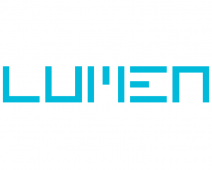Is The EU Cookie Directive Scaring Off the Data Exchanges From The European Market
by Ciaran O'Kane on 21st Jan 2010 in News
Behavioural targeting is on the radar of EU’s regulators. The EU wants to take the online advertising to task over perceived misuse of cookie data and behavioural targeting. They even passed a laughable directive late last year instructing EU publishers to offer explicit opt-ins for online behaviour tracking.
We can get into the semantics of what an EU directive actually means, but here it is in its crudest form: the EU drafts some legislation and then instructs EU countries to pass it into law; the EU has no say in how member states pass it into law and what form it will ultimately take.
There will doubtless be push back from some digital savvy member states and it will have to be re-worded. I can’t see the biggest online markets, like the UK, Germany and France, passing this directive (in its current form) into law.
It is clear that the industry needs to be more pro-active in lobbying the Government and the EU. We should be working with legislators to ensure everything is being done to protect user privacy. By putting a tight leash on behavioural targeting though, the EU will slowly kill innovation in the online display market. And marketing budget will continue to flow into unaccountable advertising channels like TV (a Nielsen panel of a couple of thousand is not accountable), radio and newspapers.
The directive will probably come into law in some shape or form later in the year, but there will doubtless be a way of working around this ill-conceived piece of legislation.
So is this the primary reason why the Data Exchanges have yet to appear in the European market? DSPs and Data Exchanges go hand-in-hand, and you’d have thought this would be a perfect time to see Exelate and Bluekai set up here.
What’s the problem? It has to be the legislation and the focus on privacy issues. Unfortunately, the Phorm debacle here last year has left some in online advertising a little wary of falling fowl of privacy activists or certain sections of the press. It’s probably this cautionary tale of Phorm’s spectacular failings that’s currently informing the decision process of the big Data Exchange players.
But there is demand here for this service. Several large publishers see data as a potential revenue stream, and selling anonymous cookie data on a third-party platform could prove to be a good source of income. And agencies and ad networks are looking to acquire third-party cookies to improve the performance of their media buys.
It can’t be stressed enough that all this user data is anonymous. The advertising can be targeted to you based on your previous behaviour online, but your identity is still unknown.
There is also a degree of transparency with these Data Exchanges. BlueKai for instance allows users to opt-out of targeted ads through their publisher partnerships. Users also have the ability to manage their online data through the Bluekai platform – but to make these changes your PC or laptop must have cookies from a Bluekai partner.
An online media buy without cookie data doesn’t make an awful lot of business sense for an agency. Buying on a context basis only is simply a waste of spend on a collection of dumb ad impressions. We are entering a new era where data is king. It will help buyers acquire the right audience and deliver improved campaign performance for brands and advertiser.
So, will we have to wait until the dust settles, and the new EU ”cookie” directive takes effect before we see the arrival of the Data Exchanges. Or maybe a decent German copycat company will pop-up with a Bluekai-like platform, and deliver cookies to the data-hungry buy-side. If there are any ad-tech vendors out there planning such a move, do get in touch: info [at] exchangewire.com.
Ad NetworkAgencyDisplayDSPExchangePublisherTrading







Follow ExchangeWire